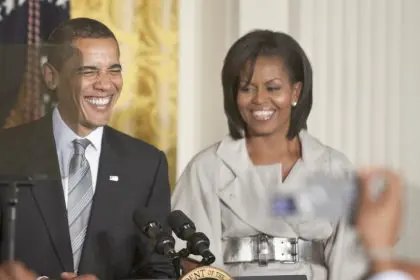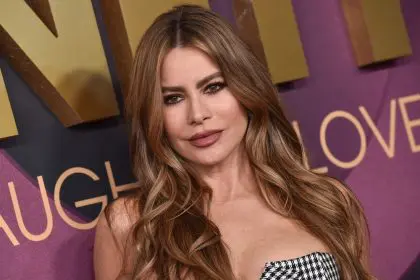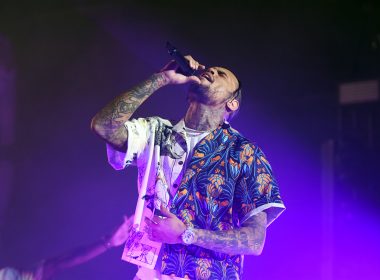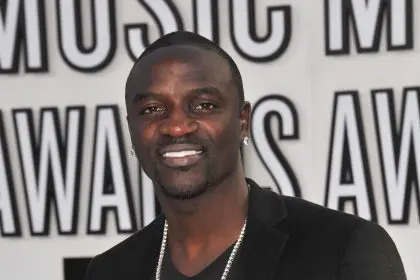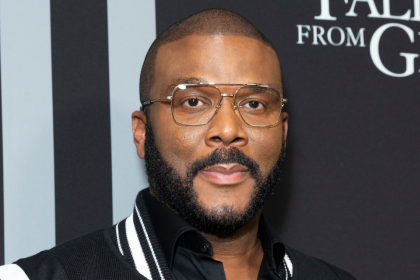From surviving birth complications to performing on global stages, Joshua August Mhoon‘s journey is nothing short of extraordinary. A recent graduate of The Juilliard School and a remarkable pianist, Joshua has grown from a child prodigy into a world-class artist with purpose.
In this exclusive Star Studio interview with Isaiah Parrish for rolling out, the Chicago native opens up about his early challenges, life-shaping lessons from Juilliard and his upcoming collaboration with piano legend Lang Lang.
Could you tell us about what you had to overcome health-wise before you even sat down at the piano?
So I was what they call stillborn — I was born without oxygen. I can’t say that I went through that, because I have no recollection of it, but that did happen, and I was resuscitated. And now I’m here.
You were a prodigy. Did you understand, at that age, the magnitude of the gift you possessed, or were you just having fun doing something you loved?
No, definitely did not understand. People — at least my parents — used to tell me, “You really don’t recognize the gift that you have.” I think still to this day, it’s hard for me to tell whether or not it’s a gift.
Sometimes it’s weird being in my own skin and having people express how grateful they are or how much they appreciate what I’ve done when I don’t even know if I can take full responsibility for it. I mean, I put in the work, and that’s super important, but this whole idea of being a prodigy sometimes negates the work aspect.
I guess people used to say I was a prodigy and that I had a gift, but I think it was really my parents who instilled the discipline to keep developing that gift.
You talked about the morals that your parents instilled in you. Out of those, what did you take most importantly with you going into Juilliard?
I don’t know if I can pinpoint one thing. It’s been less than a month since graduation, and I’ve just been processing the past four years. I’ve been thinking about how appreciative I am of how much my parents pushed and supported me.
But right now, I’ve mostly been reflecting on how much I’ve grown during these four years — musically and personally. So I don’t know if there’s one lesson that carried me all the way through, but there’s been a lot to learn.
When you first got to Juilliard, you had this raw talent. How did Juilliard mold you from prodigy to professional?
Man. I think by the time I got to Juilliard, I was already outside of the prodigy window and into the professional realm. I was performing a lot — sometimes more than I did in college.
But it was the lessons I learned from my friends, my best friends and my teachers — the personal lessons and the mistakes over those four years — that started teaching me how to grow. I’m still learning. I think my goal now is to bring out other parts of myself and show people different sides of my persona.
What lessons did you learn while you were there? What did you have to overcome?
It’s been a lot of ups and downs. I made mistakes, especially in managing myself professionally. Before you have a manager or agent, you have to run your own career.
I missed some things — like sending forms or invoices — and I had to learn the business side of being an artist. That taught me to take care of things professionally, not just musically.
Juilliard earned its reputation for a reason. My piano teachers, Julian Martin and Emmanuel Ax, pushed me to another level. I don’t know how they did it exactly — I just followed their lead, and I grew exponentially.
We had four years of music theory, which taught me how to understand and analyze what I was playing. I also took classes that helped train my ear, so I could pick up tunes by listening and replicate them.
I even dove into music history — not just classical, but all music — and really examined what music is and what it means. Juilliard also helped me realize that being an artist means being a citizen of the world.
My mission now involves using my gifts to reach, teach and touch people. I don’t think I would’ve understood that without Juilliard.
Could you tell us about your magnum opus — something you’re most proud of, past or upcoming?
I don’t like to focus on the past. My whole philosophy is once I finish something, I move on to the next. If it was great, amazing — but I have to keep going. And if it sucked, same thing — I move on.
I’m super excited about what’s coming up at the end of June. I’m going to Riyadh, Saudi Arabia, for a month to teach and play piano with Lang Lang, the most famous classical pianist in the world.
I’ve never been to the Middle East, and Saudi Arabia just opened up to tourism in the last 5 or 6 years. This opportunity wouldn’t have been possible without everything Juilliard taught me.
That’s amazing. Are there any challenges you’re currently working through or lessons you’re still learning?
This year taught me how much I can accomplish under pressure. In the last two weeks of school, I had 12 concerts at Carnegie Hall. I said yes to too many things, and I learned that I need to protect my time.
As artists, we manage so much, and everything takes energy — physical, mental, emotional. If you spread yourself too thin, your work suffers. I’m focused on raising my standard and not letting myself fall below it. That’s how I’ll grow and evolve.
Alright, a fun one — what song do you currently have on repeat?
“Total Praise” by Richard Smallwood. That’s been on repeat.
Do the songs you listen to inspire your work, or do you create from scratch?
Everything inspires me. There’s a quote — “Good artists copy, great artists steal.” I don’t take that literally, but inspiration is everywhere.
I’m starting to write music and recently scored a short film called A Woods Tale, which should be out in February. Now I listen to music differently — closer, more intentionally. I want to infuse gospel and Black American music with my classical Juilliard training in my writing. That’s where my heart is right now.






